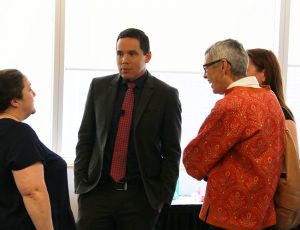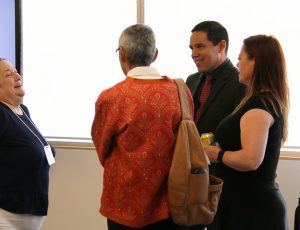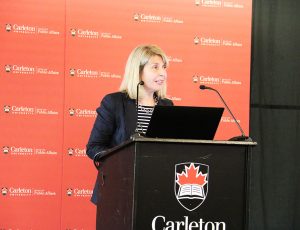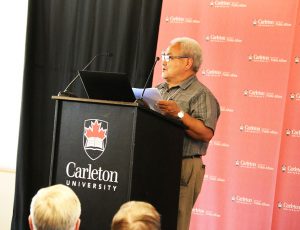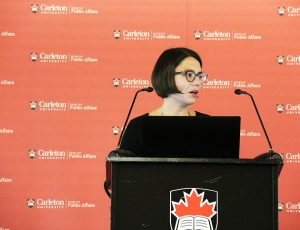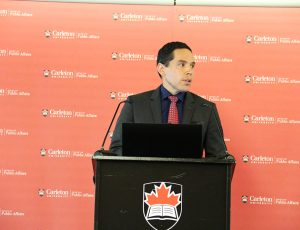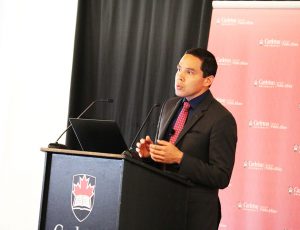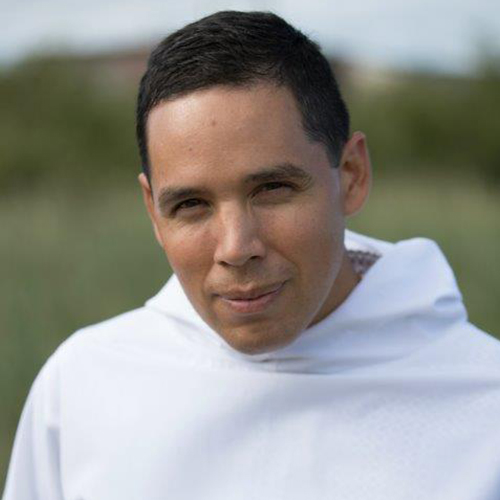
Natan Obed, President of Inuit Tapiriit Kanatami.
Inuit Leader Natan Obed offered a thought-provoking talk on Inuit democracy and governance recently as the keynote speaker at the annual Katherine A.H. Graham Lecture on Aboriginal Policy.
Natan Obed is President of Inuit Tapiriit Kanatami, which represents Canada’s 60,000 Inuit across the provinces and territories. In his talk, entitled “Reimagining Canada’s Relationship with Inuit through the Lens of Inuit Democracy,” he described the unique relationship between the Inuit and Canada as a whole.
“We don’t have the same angst within Canada as the First Nations and Metis people,” explained Obed. “We always imagine ourselves as Canadians, which is reflected in the passion you see for national events in Inuit communities.”
Obed pointed out the name of the organization Inuit Tapiriit Kanatami means “Inuit are united in Canada.” He says the name was changed upon the signing of the Inuit land claims agreements. Prior to that, it was “Inuit would be united in Canada.”
The land claim agreements, which resulted in the creation of Nunavut, have led to a different governance structure for Inuit. Those enrolled as Inuit under the agreement can vote for the president of one of four Inuit regions. In turn, those four presidents choose the leader in Obed’s position.
“I am directed by the will of the people,” he explained. “ITK represents Inuit nationally on constitutional rights, legislation, and in consultations.”
Perhaps most importantly, Obed had a message for fellow Canadians: “I hope we can get to a place where we are seen for who we are. Canadians need to understand the complexity of who we are and where we fit in this country.”
Public Health Advocacy
Obed also addressed the difficulties experienced by Inuit people in Canada. For instance, the suicide rate among Inuit—estimated at 11 times the national average—is one of the issues Obed speaks about in his government consultations.
“Suicide prevention is not seen as a public health issue, but it should be part of a legitimate public health strategy,” he argued.
He also expressed concerns about the high rate of tuberculosis in Inuit communities. In March, he joined Minister of Indigenous Services Jane Philpott in announcing the federal government’s intention to eliminate tuberculosis in Inuit communities by 2030.
The Katherine Graham Lecture coincided with gatherings of the Carleton University Institute on the Ethics of Research with Indigenous People and the Indigenous Policy and Administration program.
Monday, June 11, 2018 in General, Katherine Graham Lecture, News, Public Policy and Administration
Share: Twitter, Facebook



